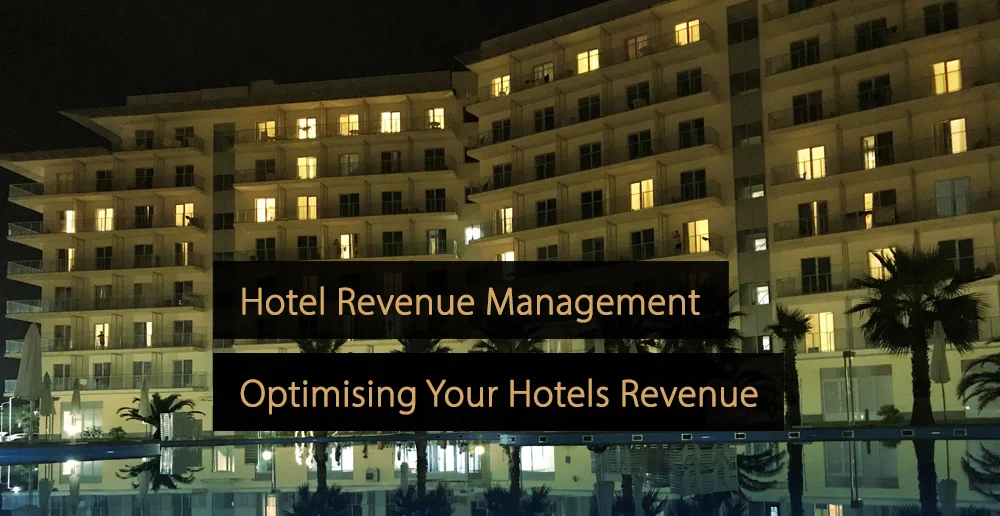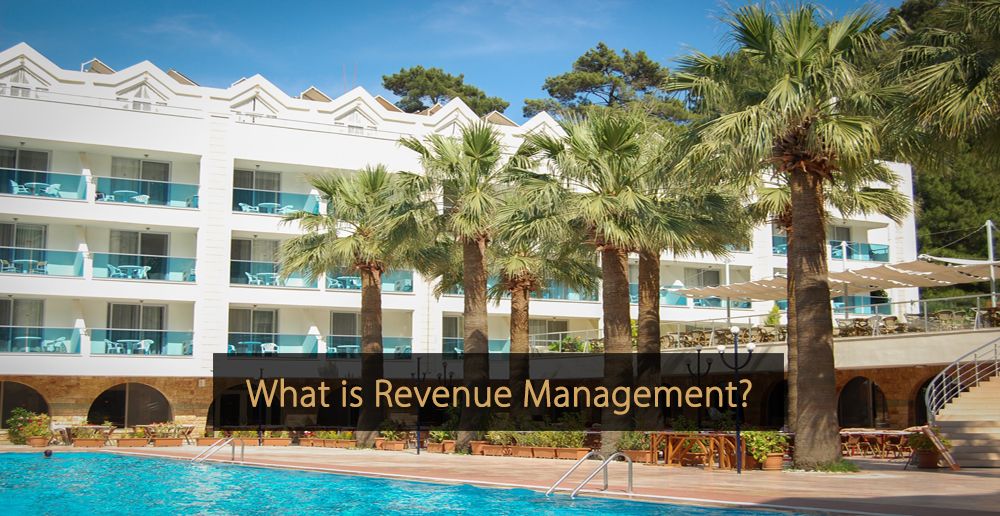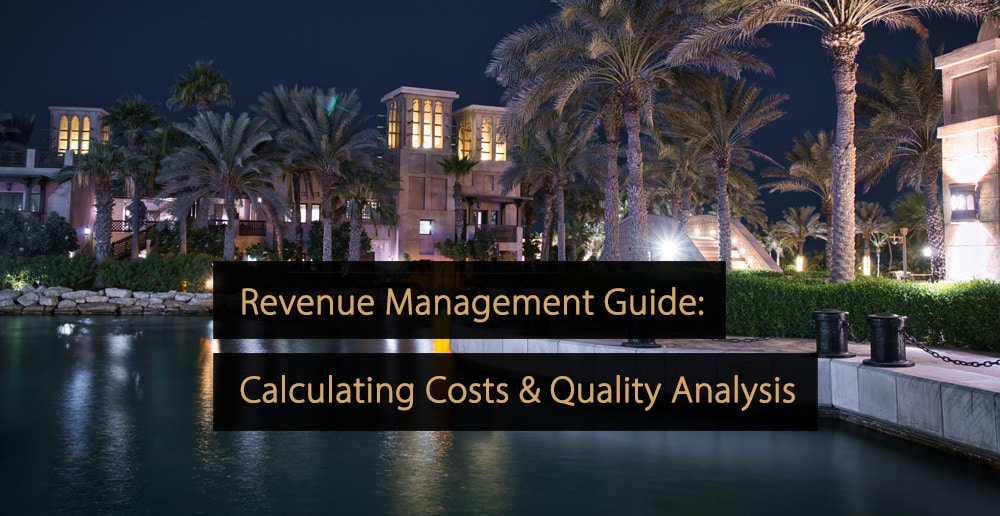For those operating in the hotel industry, revenue management is a key concept, as it enables hotel owners to predict levels of demand and optimize things like distribution and pricing in order to maximize financial results. In this article, you will learn more about hotel revenue management, why it is so valuable to hotel owners, and the necessary conditions for implementing a hotel revenue management strategy.
Table of Contents:
- What is Hotel Revenue Management?
- Necessary Conditions for Hotel Revenue Management
- The Importance of Hotel Revenue Management
- What is the Difference Between Revenue Management and Yield Management
- Open Pricing: The Next Hotel Revenue Management Strategy
- Ancillary Hotel Revenue Management Strategy
- Revenue Management in Other Industries
What is Hotel Revenue Management?
So, what is hotel revenue management? Hotel revenue management uses analytics, performance data, and other information to optimize customer demand for pricing, distribution, and availability. In the process, hotel industry employees can maximize their revenue, improving their overall financial results.
In many ways, hotel revenue management is about achieving the best possible balance between supply and demand while understanding customer habits. Crucially, it is more concerned with revenue than occupancy.
Hotels typically use analytics, past data, and external information to understand demand levels better. This then allows them to identify patterns, understand when hotel rooms need to be sold at a discount, and anticipate periods of high demand, at which point rooms can be sold for a much higher price.
A simple way to think of hotel revenue management is:
Selling the right room, to the right customer, at the right time, for the right price, via the right distribution channel, with optimal cost efficiency
Video: What is Hotel Revenue Management?
Necessary Conditions for Hotel Revenue Management
It is important to understand that revenue management strategies are not appropriate for all businesses, and certain necessary conditions must exist for it to be relevant. These necessary conditions are as follows:
- A customer base that will willingly pay different prices for the same commodity
- A perishable inventory means that after a certain point, the commodity can no longer be sold
- A fixed number of resources available to be sold at any one time
- A capacity to accurately predict or anticipate changes in demand in advance
These necessary conditions make hotels an ideal business to employ revenue management strategies. After all, customers willingly pay different prices for hotel rooms, depending on demand, time of the year, and other factors, while the hotel has both a perishable inventory and a fixed number of rooms to sell.
The Importance of Hotel Revenue Management
Hotel revenue management is important because the hotel industry itself is highly competitive. Through a robust revenue management strategy, hotel management and finance departments can take more of a data and evidence-driven approach to pricing and distribution decisions instead of relying on guesswork.
If a hotel can more accurately anticipate demand, it can take a more informed pricing approach, dynamically adjusting the strategy to maximize income. This, in turn, is vital because hotels have fixed costs that need to be met regardless of the number of hotel rooms they manage to sell on any given day.
What is the Difference Between Revenue Management and Yield Management
One common area of confusion for hotel owners and others involved with revenue management is the difference between this discipline and yield management. The difference between the two can be briefly summarised by explaining that yield management has a narrower focus and is tactical, whereas revenue management is strategic.
Interestingly, yield management is the older of the two disciplines and is firmly focused on price optimization. Within the hotel industry, this would mean optimizing the price of rooms.
By contrast, revenue management has a wider focus, incorporating ideas like choosing the right distribution channel to minimize the costs involved in making a sale and considering secondary sources of revenue.
Table: Differences Between Hotel Revenue Management and Yield Management
| Aspects | Hotel Revenue Management | Yield Management |
|---|---|---|
| Focus | Maximizing overall hotel revenue across all revenue streams and guest segments. | Maximizing revenue per available room (RevPAR) by adjusting prices based on demand. |
| Pricing Strategy | Utilizes dynamic pricing that may change based on historical data, competition, and market conditions. | Implements dynamic pricing strategies that respond to immediate and short-term demand fluctuations. |
| Inventory Control | Manages inventory for various hotel services, including rooms and ancillary services like dining, spa, and events. | Primarily focuses on managing room inventory and availability. |
| Time Horizon | Considers both short-term and long-term revenue optimization goals. | Primarily focuses on immediate and short-term revenue optimization, often reacting quickly to current demand trends. |
Open Pricing: The Next Hotel Revenue Management Strategy
Open pricing is one of the emerging pricing models associated with hotel revenue management. Simply put, this describes an approach to pricing that moves away from the fixed modifiers typically used with a BAR (best available rate) approach. As a result, hotels gain greater flexibility and freedom.
Among the most significant benefits of open pricing is the ability to change pricing for one distribution channel independently from others. This can help to target pricing towards different market segments and also means hotels avoid situations where they have to close off certain channels based on their approach.
This approach shows significant promise within the hotel industry because flexibility means hotels can respond more swiftly and accurately to their current needs. Customers may also benefit from seeing pricing that more accurately reflects the situation or pricing that is more targeted to their market segment.
If you want to learn more about open pricing, its benefits, how it can be implemented, and its relevance to hotel revenue management, read “Open Pricing: Why Is It the Next Hotel Revenue Management Strategy?”
Ancillary Hotel Revenue Management Strategy
An ancillary hotel revenue management strategy involves earning extra income from additional products and services that extend beyond the sale of hotel rooms. This allows you to create a more comprehensive revenue strategy based on your business operations rather than simply focusing on room rates and distribution.
Some examples of ancillary revenue sources include a hotel restaurant, a hotel gift shop, conference facilities, leisure facilities, spa services, and tours. You might also be able to create partnerships with local businesses and earn a commission on customers you send to them. These ancillary services can also boost the guest experience in your hotel.
Revenue Management in Other Industries
Finally, it is important to understand that hotel revenue management is not the only form of revenue management. The practice originated in the airline industry. To this day, airline companies often use dynamic pricing and share many methods of anticipating future demand that hotels use.
Moreover, revenue management practices have become commonplace in other industries away from the travel and tourism industry, with examples including financial services, theatres, and even medical services.
Optimizing financial results in a highly competitive hotel industry is usually the key to achieving long-term success. Through a carefully coordinated revenue management strategy, hotel owners can more accurately anticipate changing demand levels and then use that information to make informed decisions about pricing and distribution.
Did You Like This Article About Hotel Revenue Management?
You might also be interested in the following articles:
- Revenue Manager Job Description: What to Look For?
- Why is Rate Parity Vital for Hotels? & Tips to Win the Parity Game
- Hotel Budget: Effective Budgeting Tips for Hoteliers
- Hotel Restaurant Management: Tips to Maximize Revenue for Your Hotel
- Restaurant Revenue Management Strategies for Successful Managers
More Tips to Grow Your Business
Revfine.com is the leading knowledge platform for the hospitality and travel industry. Professionals use our insights, strategies, and actionable tips to get inspired, optimize revenue, innovate processes, and improve customer experience.Explore expert advice on management, marketing, revenue management, operations, software, and technology in our dedicated Hotel, Hospitality, and Travel & Tourism categories.
This article is written by:
Hi, I am Martijn Barten, founder of Revfine.com. With 20 years of experience in the hospitality industry, I specialize in optimizing revenue by combining revenue management with marketing strategies. I have successfully developed, implemented, and managed revenue management and marketing strategies for individual properties and multi-property portfolios.











Leave A Comment